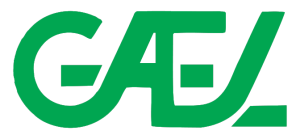Bookkeeping qualifications do not include formal certifications or licenses. However, certified professionals may enjoy advantages in the job market. Accountants and auditors are typically required to hold at least a bachelor’s degree (BLS). After working in the field for at least a year, CPAs also need to take an exam.
- After you pay business-related expenses, the amount of money remaining at the end of every month equals your gross profit.
- When it comes to accounts payable, invoices and records are very important.
- You’ll also need to keep constant track of inventory, food and pour costs, prepaid accounts, short pays and vendor credits, and tips.
- Utilizing technology tools and seeking professional guidance simplifies complex processes, minimizes errors, and saves you valuable time.
- Assets are things you own, like equipment, inventory, and straight cash.
- Bookkeeping is the ongoing recording and organization of the daily financial transactions of a business and is part of a business’s overall accounting processes.
Complying with tax and accounting regulations is paramount to avoid penalties and maintain the financial integrity of your restaurant. Utilizing technology tools and seeking professional guidance simplifies complex processes, minimizes errors, and saves you valuable time. By diligently tracking expenses and effectively managing purchasing, you can identify cost-saving opportunities, streamline operations, and maximize profitability for your restaurant.
Simple Steps for Mastering Restaurant Bookkeeping
It’s essential to find a bookkeeper who understands the nuances of the food and beverage industry, including both front-of-house operations and back-of-house management. Being a great bookkeeper takes an efficient bookkeeping system to keep track of your restaurant’s financial health. It’s important to understand the principles behind the food and beverage industry so that you know which bookkeeping method is most tailored to this particular industry. The best restaurant accounting software addresses the intricacies of restaurant operations and back office management, such as inventory taking, cost management, and employee scheduling. More advanced restaurant accounting software may also offer features, such as catering management and variance analysis. For other accounting software suggestions, check out our guide to the best small business accounting software.
- Remote work has expanded across nearly every field, including bookkeeping.
- Choosing the right accounting period allows you to accurately compare your performance period over period.
- If you have a bookkeeper and accountant, they will be able to provide you with a detailed report on each of these.
- The cost of goods sold represents the costs of making and selling your products at any given time, including inventory costs.
- The concept defines the overall theme, cuisine style, ambiance, and target audience of the restaurant.
- Key reports such as profit and loss (P&L) statements and prime cost (food and labor costs) provide valuable insights into your restaurant’s performance.
Remember to remain flexible and open to change, whether adjusting menu items, changing operating hours, or accommodating special dietary needs, to meet evolving customer demands and market conditions. Maintaining flexibility in the menu allows for adaptation to changing trends and customer preferences, how to do bookkeeping for a restaurant enhancing the restaurant’s appeal and staying competitive in the market. Ask for feedback through surveys, online reviews, and direct conversations, then use it to improve your restaurant. It shows you care about their experience and helps you quickly fix any problems, making them more likely to return.
An Affordable Bookkeeping Alternative to a CFO
Ideally, you’ll want a bookkeeper who is familiar with the restaurant industry. Typically, they’re happy to send their bookkeepers more work if they can accommodate it. Rather than trying to handle the books yourself or hiring someone to work internally, we recommend getting an outside bookkeeper. This wouldn’t be a full-time position, and they’re a separate person from your business accountant. Thus, they have no control over or connection to the daily ordering and sales in your restaurant.
Put simply, prime costs is the sum of your restaurant’s costs to sell its food, drinks and products—your COGS as mentioned above—plus the labor costs of your salaried and casual staff. Industry averages suggest your prime costs should be between 55% and 60%. Accounting software helps you and your accountant stay on the same page. By connecting seamlessly with your POS, accounting software automates the collection and organization of financial data and transactions. Because recording income ahead of expenses makes your restaurant seem more profitable than it is.

